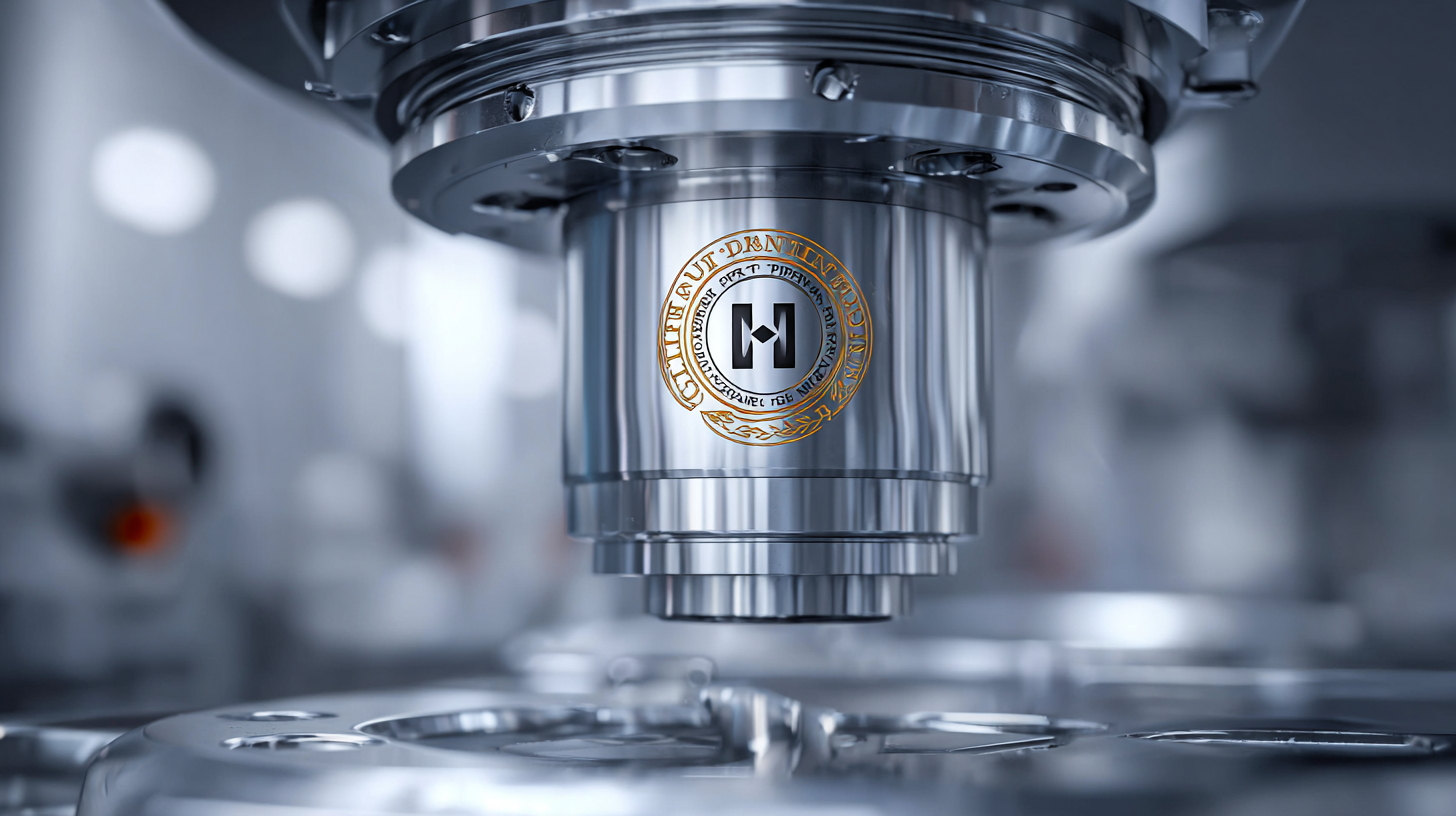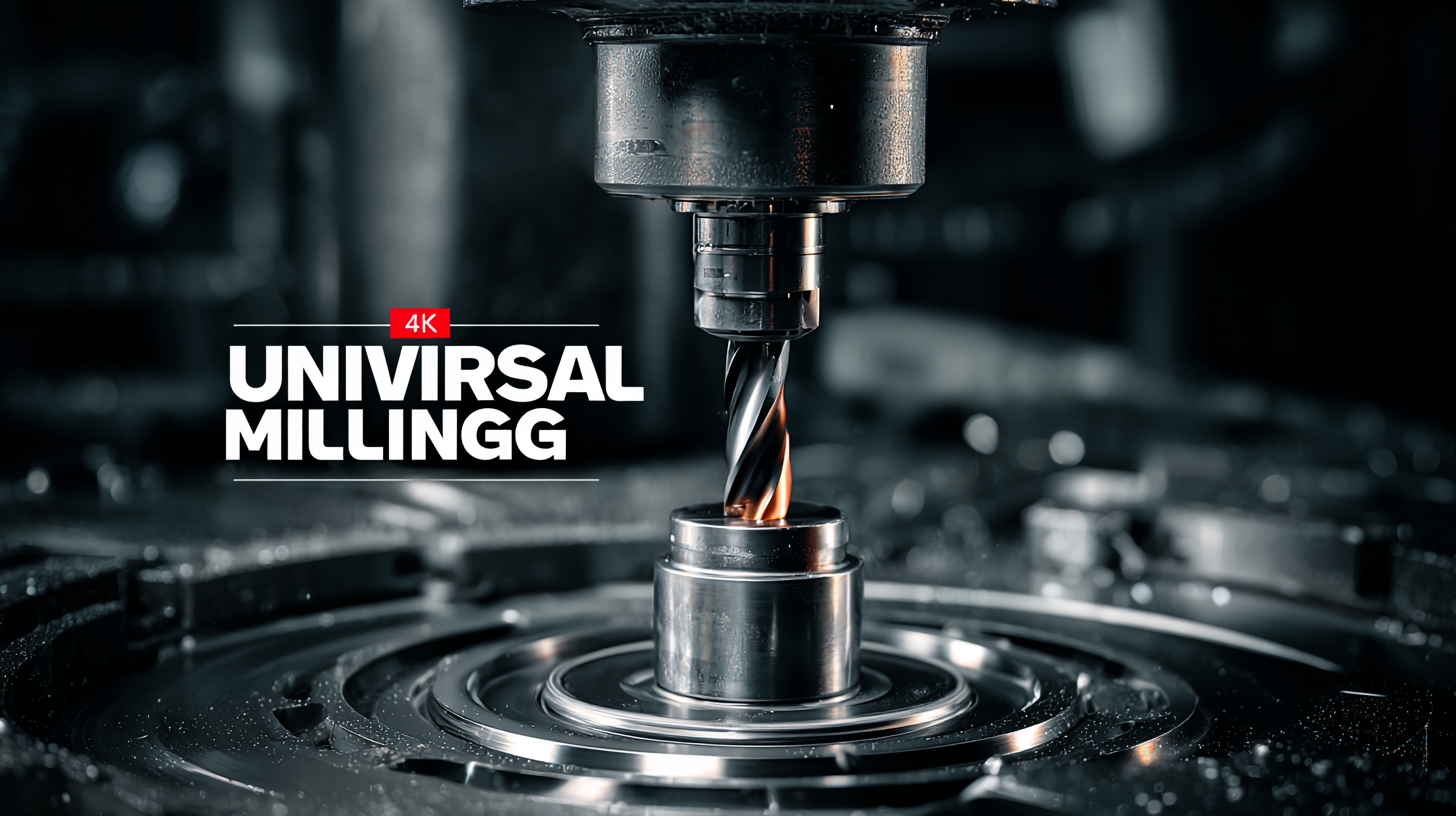
- sales@bjbod.com
- Mon - Sat at 7:00AM to 9:00PM

In the rapidly evolving landscape of manufacturing, the Universal Milling Head has emerged as a pivotal component that defines efficiency and precision across various industries. As we approach 2025, the demand for advanced milling technology is projected to grow significantly, driven by a 15% increase in global production capabilities, according to the latest report from the International Federation of Robotics. The pivotal role of import and export certifications becomes evident as manufacturers seek to comply with stringent quality standards while tapping into international markets. Navigating these certifications not only facilitates smoother trade flows but also enhances product reliability and competitiveness. This blog will explore the essential certifications for Universal Milling Heads, the implications of regulatory compliance, and strategies for leveraging these certifications to ensure successful market penetration and operational excellence.

When selecting a manufacturer for universal milling heads, key features such as
precision,
durability, and
versatility are paramount.
According to a report by MarketsandMarkets, the global milling machine market is projected to reach
USD 10.3 billion by 2025, with universal milling machines being a significant contributor
due to their multifunctional capabilities. A reputable manufacturer should provide milling heads that
demonstrate high tolerance levels and the capacity to handle diverse materials, ensuring optimal performance
in various applications.
In addition to precision, the quality of materials used in manufacturing these milling heads plays a crucial role in their longevity and efficiency. The International Organization for Standardization (ISO) standards emphasize the importance of using high-grade steel and advanced coatings to minimize wear and tear. Manufacturers should also offer after-sales support and maintenance services, which can drastically reduce downtime and enhance productivity. By focusing on these essential features, businesses can make informed choices that directly impact their operational success and long-term sustainability in the competitive milling sector.
Navigating the complexities of import and export certifications is crucial for manufacturers aiming to succeed in a global market. A Certificate of Origin (CO) is one of the most essential documents in international trade, as it verifies that goods are produced in a specific country and comply with customs and tariff regulations. This certification also plays a pivotal role in determining eligibility for special trade agreements, enhancing manufacturers' ability to lower costs while expanding their market reach.
Moreover, as international trade policies continue to evolve, understanding specific requirements for exporting to countries like China becomes increasingly critical. China's stringent regulatory framework for food and beverage products demands that manufacturers be well-versed in compliance standards to ensure the safety and quality of their offerings. As businesses explore opportunities in markets influenced by active free trade agreements, a clear grasp of import-export certification processes will empower them to capitalize on these advantages and enhance overall operational efficiency.
This chart illustrates the number of certifications required for various regions when importing and exporting universal milling heads. Understanding these requirements is crucial for manufacturers looking to succeed in international markets.
Quality assurance plays a crucial role in the production of universal milling heads, ensuring that these complex machines meet industry standards and customer expectations. Implementing comprehensive quality control processes not only enhances product reliability but also minimizes the risk of defects that could lead to costly downtimes. Manufacturers should prioritize regular testing and inspection throughout the production phases to maintain high-quality output.
**Tip 1:** Establish a robust quality management system that incorporates feedback from every production stage. This can help identify areas needing improvement and ensure any potential issues are addressed promptly.
Furthermore, investing in skilled personnel who are trained in quality assurance practices is essential. Knowledgeable staff can better anticipate challenges and implement solutions effectively, leading to improved manufacturing precision and consistency.
**Tip 2:** Create a culture of quality within the organization, encouraging all employees to take ownership of production standards. Providing training and resources can empower workers to contribute to the overall quality of the milling heads.
Ultimately, a strong focus on quality assurance not only elevates the manufacturing process but also enhances customer satisfaction, contributing to the long-term success of universal milling head production.

In today's competitive global market, understanding compliance and certifications is paramount for businesses looking to navigate import and export processes effectively. Essential certifications serve not only as a gateway in achieving market access but also as a testament to product quality and safety. For manufacturers of universal milling heads, obtaining certifications such as ISO, CE, or specific industry-related standards can greatly enhance credibility and customer trust.

Moreover, each target market may have unique compliance requirements that must be meticulously followed to avoid potential delays or barriers to entry. It is crucial for companies to stay informed about these regulations and adapt their processes accordingly. By investing time and resources into understanding the intricacies of international certifications, businesses can streamline operations, mitigate risks, and ultimately achieve greater success in global trade.
Emphasizing compliance not only ensures seamless import and export activities but also positions companies as reliable partners in the eyes of international clients.
When investing in universal milling heads, evaluating manufacturer credentials and certifications is crucial for ensuring quality and compliance with industry standards. According to a report by Grand View Research, the global milling tools market was valued at approximately $4 billion in 2022 and is expected to expand at a CAGR of over 5% through 2030. This growth necessitates that manufacturers adhere to strict quality management systems, such as ISO 9001, to maintain competitiveness and reliability.
Additionally, certifications like CE marking and ANSI standards play a significant role in the milling equipment industry, ensuring that products meet European and American safety and efficiency regulations. A study by MarketsandMarkets indicates that manufacturers with robust certification processes not only gain market access more easily but also enhance customer trust. As a result, potential buyers should prioritize manufacturers with verified credentials when sourcing universal milling heads, as these certifications are often indicative of superior engineering practices and product longevity.